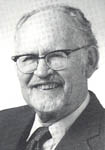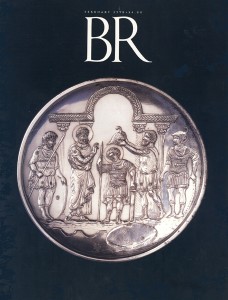A Teacher Like Elijah
A rare teacher, James Muilenburg was able to hold together the historical meaning, the literary form and the theological significance of biblical texts.

In my first teaching position, at Colgate University, I arranged for my own teacher, Dr. James Muilenburg, then at Union Theological Seminary in New York City, to give a lecture at Colgate.a At the family dinner table before his visit, my youngest daughter asked, “Who is Dr. Muilenburg?” “Oh you know, Joan,” answered my oldest daughter, Carol. “He’s Daddy’s God!”
Dr. Muilenburg is held in comparable high esteem by his distinguished students from Union Theological Seminary, including Walter Harrelson, Phyllis Trible, Norman Gottwald and Walter Brueggemann. It was at Union that Dr. Muilenburg’s career reached its climax. There was, however, another exciting chapter before that—at the Pacific School of Religion (PSR) in Berkeley, California.
Dr. Muilenburg (esteem restrains me from speaking of him familiarly as “Jim”) began his career as a theological school teacher in 1936 at PSR, as the successor to the archaeologist William Frederic Badè, after whom the Badè Institute is named.b There I came under the spell of Dr. Muilenburg’s powerful teaching, took all the courses he offered and finally, at his urging, went to graduate school at Yale. Perhaps I was his first theological student to go into graduate studies.
Already a library member? Log in here.
Institution user? Log in with your IP address.

